School feeding at home
Almost 1.6 billion children and youth in 197 countries are missing school as classes have been suspended to restrain the spread of coronavirus. Some 370 million among them are no longer receiving school meals — often the only meals they could count on.
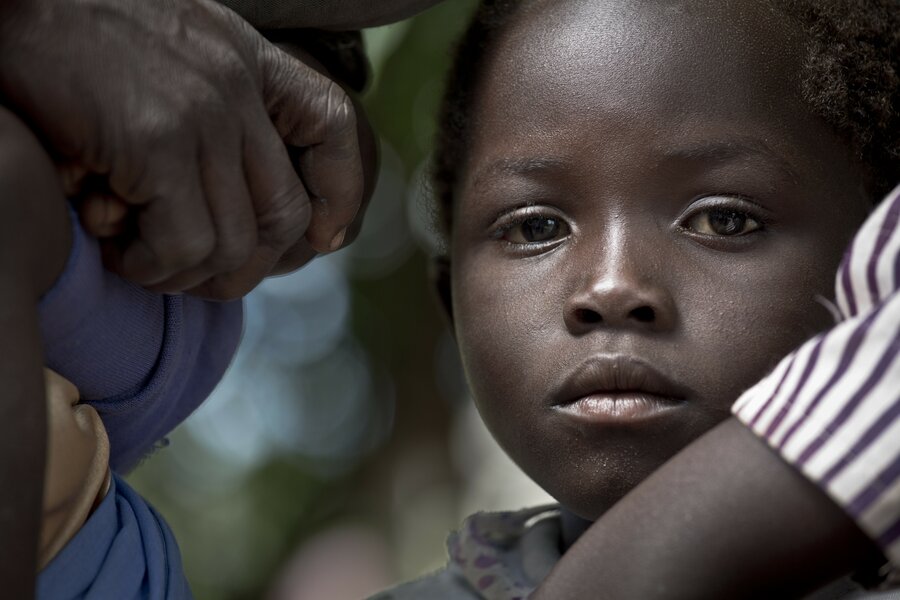
"Without school meals, millions of children will go hungry. They risk falling sick, dropping out of school and losing their best chance of escaping poverty. We must act now to prevent the health pandemic from becoming a hunger catastrophe," said David Beasley, Executive Director of the World Food Programme (WFP). The agency is working with governments around the globe to ensure children continue receiving the food they need. Under a recently-launched partnership with UNICEF, WFP is also supporting efforts to ensure school-based nutrition and health services will be offered as incentives for the most vulnerable children to return to school once the emergency is over.
Here are a few examples of how WFP is bringing school feeding home for vulnerable children.
Colombia
"You can tell the difference between a hungry child and well-nourished child at school. A hungry child is distracted and weak in the classroom. Keeping this food assistance for the families during this pandemic will have benefits for the child and the family as well," says Eloy Berty, School Principal in Riohacha, a city in La Guajira department in the north of the country.
Prior to the COVID-related closures, the school feeding programme was delivering school meals to 112,000 children in five departments. In April, for more than 86,000 learners in La Guajira department, these were replaced by take-home rations. Collected by one family member, the rations provide a balanced food basket comprising dairy products, cereals, fruit and cooking oil.
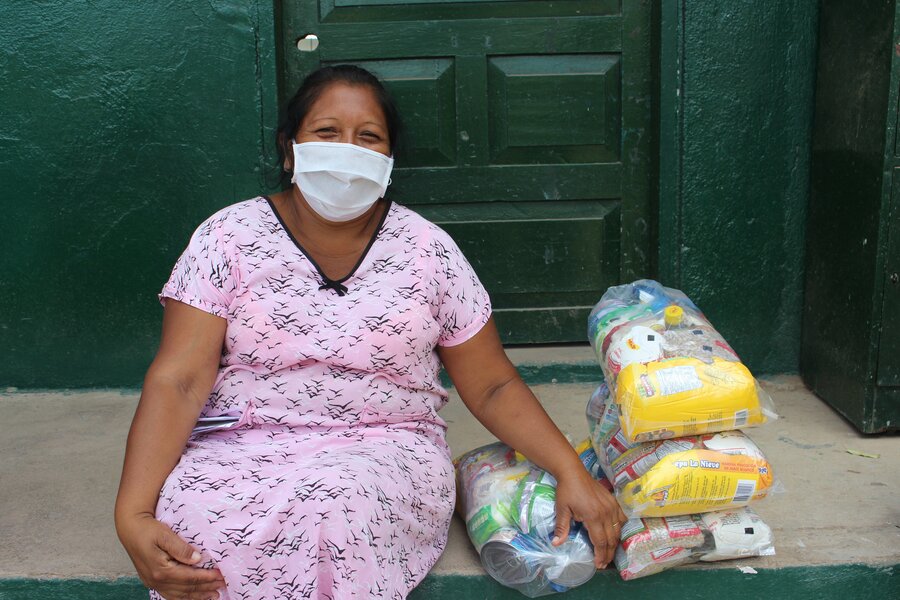
"These meals are helpful for all the family. My kids always ask when the school will open again, they say they want to study, to write, they want to go back," says Luz Marina González, a Venezuelan migrant and mother of two school-aged children.
Congo
As school activities were replaced by radio and TV programmes under the ‘education at home' slogan, WFP launched its ‘school feeding at home' initiative through the provision of take-home rations consisting of rice, peas, vegetable oil, salt and sardines.
"I've noticed some of children have lost weight", says Yolande Moranga, director of Mingali Bambou School in the Pool Department, as she hands out rations. "Most of the children in the village can only eat at school because their parents, especially mothers, go to the fields early in the morning and come back at 4 pm. Now children are left alone. I'm really happy about this distribution," she adds.
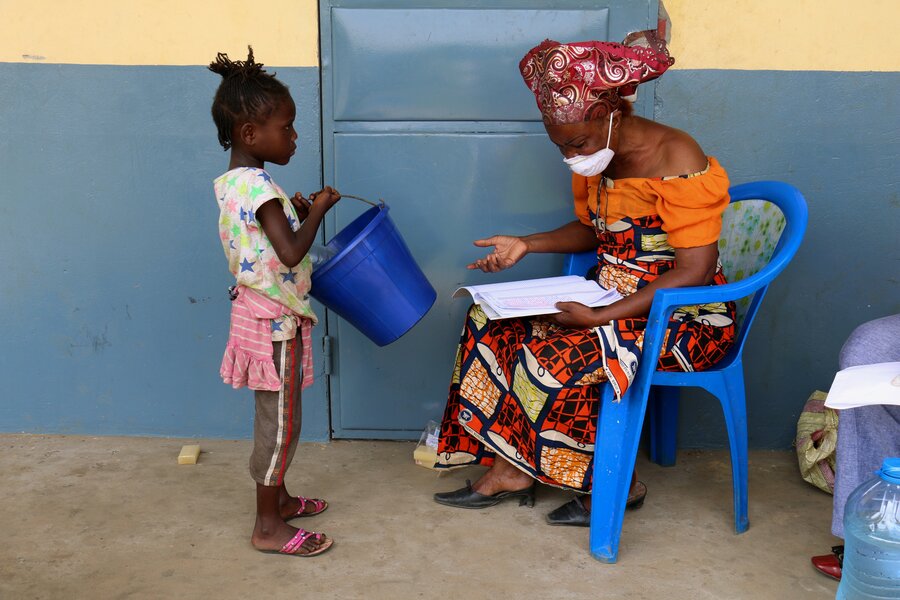
One of the children picking up his rations is first-grader Derrick. His father, Narcisse Bandouzi, is a driver who usually transports cassava from the fields to the market places. Today, Narcisse is on duty to carry his son's dry food ration to their home.
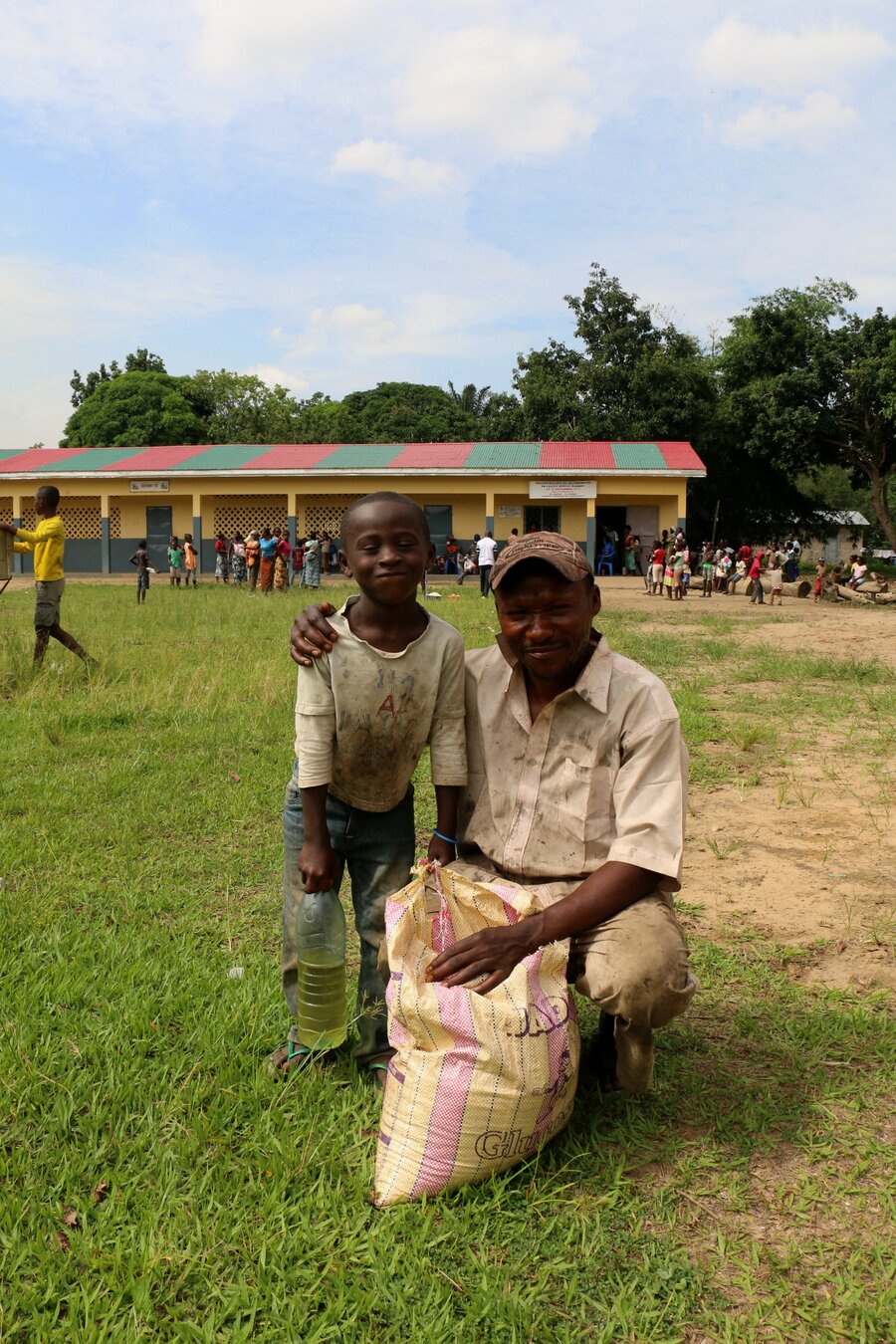
Before the outbreak, 80,000 children were benefiting from the school feeding programme in Congo. The take-home rations initiative is now reaching 61,000 of them, while some others are receiving cash transfers.
Cambodia
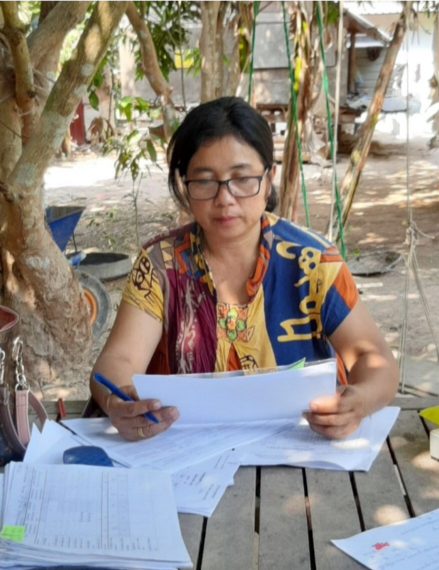
Sokhan, the dedicated principal of Duon Aov Primary School in Angkor Thom District, has been overseeing the implementation of the school feeding programme for almost 20 years.
"The meals help children stay focused. Their results improve, they love coming to school and are willing to give back to the school," she explains, adding that most of the kids she talked to said that they would like become teachers when they grow up.
In the face of the challenge posed by school closures, WFP is working with the Ministry of Education, Youth and Sport to provide take-home rations of donated rice.
The distribution has reached nearly 104,000 students from 908 primary schools in five provinces in Cambodia so far. Families identified as being chronically poor received a one-off installment of 10 kg of rice per child to mitigate the immediate economic shock of school closures and other market and livelihood-related gaps linked to COVID-19 containment measures.
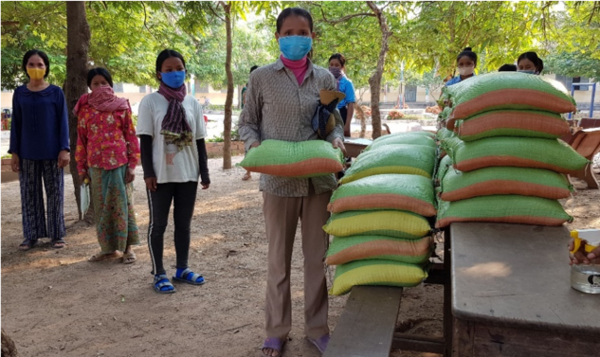
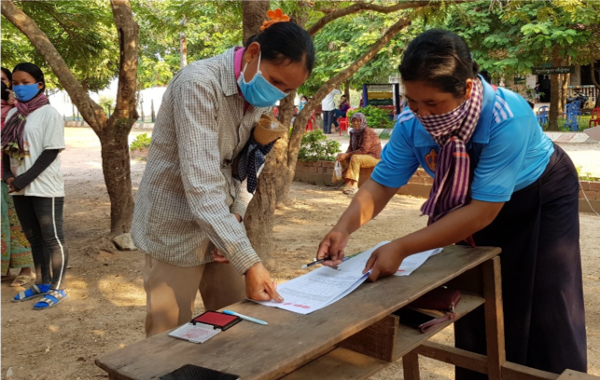
Chim Leak's family is one of them. This morning, she dons a face mask as she makes the familiar trip to the school — not to drop her two children off, but to pick up her 20-kg ration of rice.
"We've always had to work really hard to earn just enough to feed our family. Life has not been easy for us. But with the current virus situation, it has become much worse. My husband does not have any job at the moment, and I cannot sell the boiled corns and cashew nuts that gave me an income," she says. "I am happy to receive these rations. They will help my family for a short while at least."
Libya
Providing one 2-kg box of mineral and vitamin-fortified date bars to 18,379 students aged 6 to 14 and their families in 58 schools in southern Libya, WFP and the Ministry of Education are using the take-home ration initiative to support children while they take distance learning. The ration secures 30 percent of the daily nutrition needs of the children and five of their family members for a five-day period.
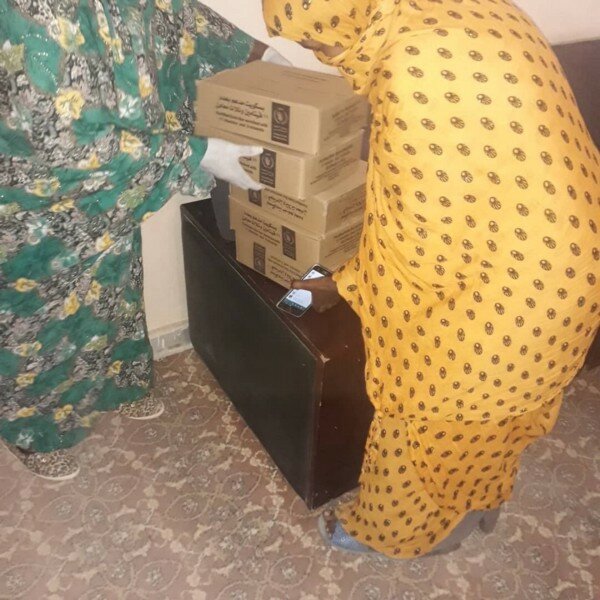
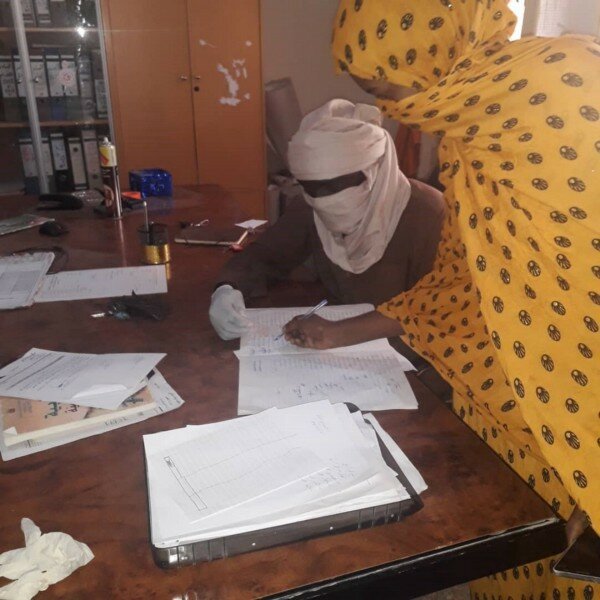
"By providing snacks for kids and their families, we are supporting Libya's priority to ensure distance learning takes place while schools are closed to prevent the spread of COVID-19. This means not only that there is one less concern for parents, but also that kids can focus on what's really important: learning," says Samer Abdel Jaber, WFP Representative and Country Director in Libya. "We look forward to the day when COVID-19 is behind us, but in the meanwhile, we stand behind Libya in its commitment to prioritize education."
Distributions, undertaken by school officials during curfew-allowed times and with all COVID-19 precautions in place, started on 30 March, reaching 15.000 students and their families so far.
